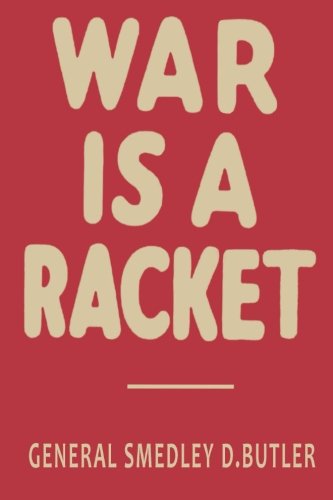The teaser for a recent Bret Stephens column in The New York Times accurately summarizes its contents: “If Iran won’t change its behavior we should sink its navy.”
We’ve done it before and, by golly, we can do it again. Stephens offers his readers this sanitized version of history to make his case: “On April 14, 1988, the U.S.S. Samuel B. Roberts, a frigate, hit an Iranian naval mine while sailing in the Persian Gulf. The explosion injured 10 of her crew and nearly sank the ship. Four days later, the U.S. Navy destroyed half the Iranian fleet in a matter of hours. Iran did not molest the Navy or international shipping for many years thereafter.”
Stripped bare of context, that paragraph is factually correct. But stripping it of context, as Stephens does, transforms it into a form of untruth, not a blatant lie perhaps, but an exercise in sleight of hand. Indeed, the very purpose of his column is not to enlighten, but to deceive and manipulate.
 War is a Racket: The A...
Best Price: $6.45
Buy New $3.79
(as of 03:45 UTC - Details)
War is a Racket: The A...
Best Price: $6.45
Buy New $3.79
(as of 03:45 UTC - Details)
Americans are susceptible to this sort of argument. We like to think that the Pearl Harbor attack came out of the blue, ignoring the years of escalating antagonism between the United States and Japan that preceded it. Our version of the 1962 Cuban Missile Crisis portrays it as an unprovoked act of aggression, conveniently forgetting U.S. efforts over the previous two years to overthrow or assassinate Fidel Castro. And we prefer to divorce decades of muddled U.S. policies in the Middle East from the heinous crime of 9/11, pretending that the former played no role in inspiring the latter.
Yet bad history leads to bad policy. Stephens implicitly suggests that the incident involving the Samuel B. Roberts was itself an unprovoked attack. In fact, the story is a bit more complicated and those complications deserve reflection today.
Here is just some of the context that Stephens chooses to leave out.
Item: In 1988, Iran was in the eighth year of a war with Saddam Hussein’s Iraq; Saddam had initiated that conflict by invading Iran, an unprovoked and illegal act of aggression.
Item: Beginning in December 1983, the United States had thrown its support behind the Iraqi dictator, providing him with battlefield intelligence and various types of material support; starting in 1985, in what became known as the Iran-Contra affair, the Reagan administration also began secretly providing arms to Iran.
Item: In 1984, Iraq had begun attacking ships involved in exporting Iranian oil; Iran responded in kind, attacking tankers belonging to Kuwait and Saudi Arabia, countries that were bankrolling Saddam’s war effort.
Item: On May 17, 1987, with the double-dealing of Iran-Contra having become public, an Iraqi fighter-bomber attacked the USS Stark, nearly sinking it and killing 37 American sailors; Secretary of State George Shultz blamed Iran for the incident, attributing it to a “basic Iranian threat to the free flow of oil and to the principle of freedom of navigation”; in fact, both Iran and Iraq were engaged in impeding the free flow of oil.





